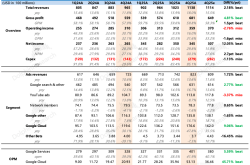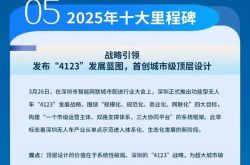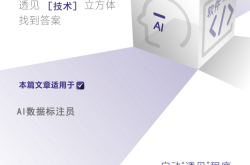Manus Exits China: Behind the Hurried Departure of the Former AI Agent Star
![]() 07/18 2025
07/18 2025
![]() 505
505

Text / Daoge
Amidst massive layoffs, cleared social media accounts, and inaccessibility to Chinese IPs, Manus, once hailed as the "rising star of China's AI agents," abruptly vanished from the Chinese market just as its valuation soared to $500 million.
Recently, news of Manus' "layoffs and departure" has dominated the headlines. Reports indicate that Manus' headquarters will relocate from China to Singapore, and its domestic team will undergo significant downsizing—from an original 120-person staff to just over 40 core technical personnel who will be relocated to the Singapore headquarters, with the remaining employees facing layoffs. Notably, the severance packages are generous, offering laid-off employees N+3 or 2N compensation.
Regarding the layoffs, Manus officially stated to the media: "Considering the company's operational efficiency, we have decided to adjust some business teams. The company will continue to focus on developing core businesses and enhancing overall operational efficiency."
Regarding the "departure," an insider responded to Huxiu, stating, "The company hasn't run away, and business operations are normal." "In fact, there's no issue of headquarters relocation. When Manus launched in March, it was positioned as an international product. Currently, we are ensuring compliance with various countries' standards to serve global users under international framework requirements."
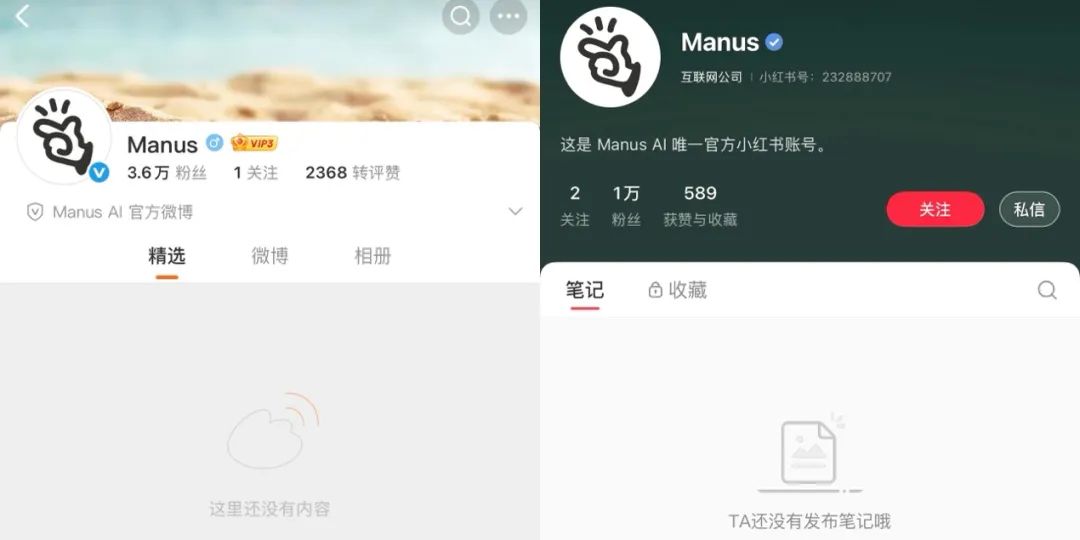
Image source: Manus Weibo, Xiaohongshu
Currently, Manus has cleared the content from its Chinese social media accounts, including its official Weibo and Xiaohongshu pages, and deleted its March announcement of cooperation with Alibaba's Tongyi Qianwen. The Manus official website now displays "not available in your region" for Chinese IP access.
In fact, Manus' headquarters moved to Singapore in May. In mid-June, Manus co-founder and product officer Zhang Tao publicly confirmed at the "Super AI" conference in Singapore that the company's headquarters is in Singapore, with additional offices in Tokyo and California.
According to the Manus website, it has commenced recruitment in Singapore, offering positions such as "Data Analyst," "AI Application Engineer," and "User Experience Designer." According to local recruitment platform MyCareersFuture, monthly salaries for these roles range from $8,000 to $16,000, with some positions offering up to $18,000 per month.
Manus was developed by Beijing Butterfly Effect Technology Co., Ltd. (Butterfly Effect), an AI startup founded in April 2022. The founding team includes serial entrepreneurs such as CEO Xiao Hong and co-founder and chief scientist Ji Yichao.
On the eve of Manus' debut, Butterfly Effect completed its Series A funding round, supported by leading funds and investment institutions like ZhenFund, Sequoia China, and Tencent.
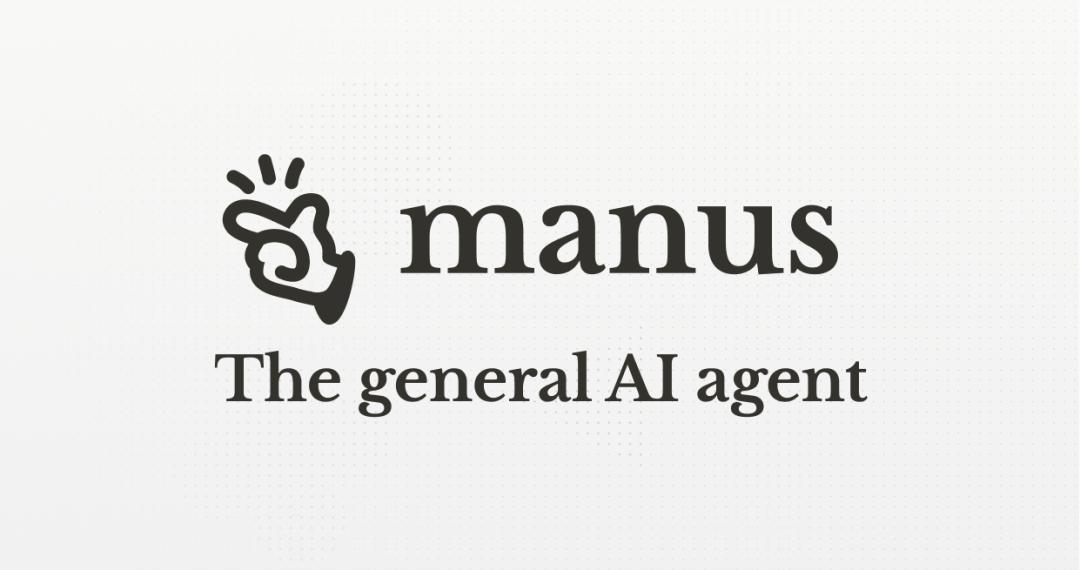
Image source: Manus official website
Manus positions itself as a "general AI agent" capable of independently completing complex tasks by browsing the web and operating tools. The product demonstrates its step-by-step execution process to users in real-time through a virtual machine interface, aiming to bridge the gap between "conception and execution."
Unlike chatbots that merely provide answers, Manus' core competitiveness lies in integrating AI models with automated execution systems, minimizing the need for human intervention. It was once regarded as a representative of China's AI innovation following DeepSeek.
User responses, business collaborations, and capital financing following Manus' launch underscored its popularity.
Manus officially launched on the morning of March 6, with its name derived from the Latin "Mens et Manus," meaning "mind and hand." Within three days of its launch, the waiting list surpassed 2 million. Due to its invitation-only beta testing, invitation codes were once sold for up to RMB 100,000.
Five days after the product launch, Manus announced a strategic partnership with Alibaba's Tongyi Qianwen team, planning to realize all Manus functions on domestic models and computing power platforms based on Tongyi Qianwen's open-source models, aiming to expand the domestic market through this collaboration. However, with its withdrawal from China, this process has abruptly halted.
In late April, Manus received $75 million in Series B funding led by renowned Silicon Valley venture capital firm Benchmark, boosting its valuation to approximately $500 million, a five-fold increase. According to Manus, the Series B funds will primarily be used to expand international markets such as the United States, Japan, and the Middle East.
On May 12, Manus was opened to all users, with registrations exceeding 1 million on the first day of openness.
Manus' departure is not a random occurrence.
According to Hong Kong's South China Morning Post, new US regulations that took effect in January require "reporting and review of the flow of US capital and high-end technology to key areas such as the overseas AI industry." The $75 million funding led by Benchmark has therefore entered the US Treasury's security review process. Consequently, investors requested Manus to relocate its headquarters from China to avoid scrutiny and integrate into the international ecosystem.
However, attributing Manus' relocation solely to capital pressure may be oversimplified. In fact, Manus' Singapore entity, "Butterfly Effect," was registered in Singapore as early as August 2023 and is wholly owned by a Cayman Islands entity of the same name, indicating that the founding team had already set the stage for Manus' global business expansion.
According to Zhibaidao's analysis, two main factors likely led to Manus' "relocation":
Firstly, the shortage of computing power has become a significant hurdle. Due to GPU bans, Manus cannot access top-tier computing resources to support product iterations. As an AI agent requiring simultaneous scheduling of multiple large models, Manus must invest heavily in advanced GPUs; otherwise, its product competitiveness will be constrained by domestic computing power. Relocating to Singapore allows it to leverage the region's relatively open computing power supply network to circumvent technology blockades.
Secondly, Manus faces growth pressures on the business front. During the first round of beta testing in March, Manus had over 20 million monthly active users, but after opening registrations in May, the user base quickly dwindled to about 10 million, with the retention rate halving. In terms of pricing, Manus offers a basic plan for $19 per month, a Plus plan for $39 per month, and a Pro plan for $199 per month. However, users generally perceive the pricing as too high, and the lack of significant feature differentiation has not yielded favorable results.
Zhibaidao believes that these issues have drastically narrowed Manus' survival space in China. Currently, the pace at which "intelligent agents" transition from concept to value validation is accelerating. If the annual recurring revenue (ARR) cannot support its high valuation, the company is likely to be swiftly abandoned by capital and the market.
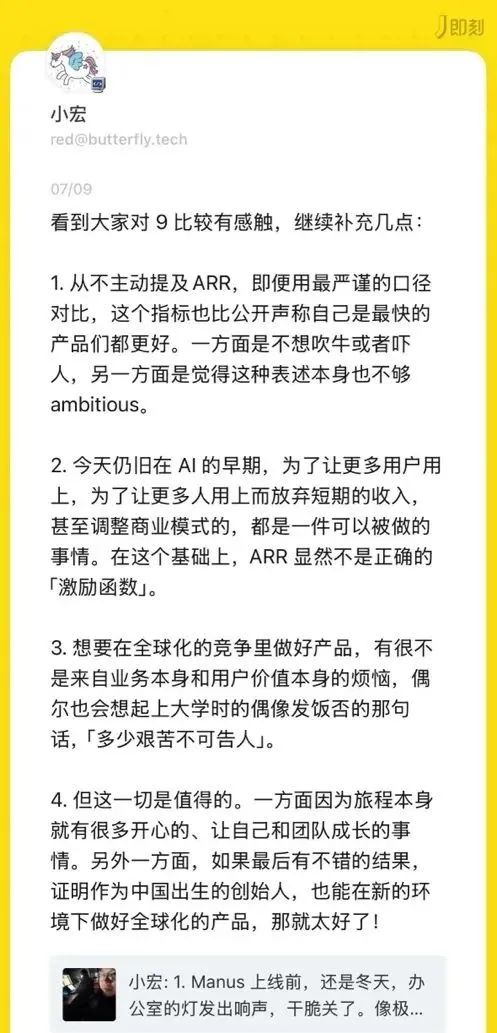
Image source: Xiao Hong's social media platform
Manus founder Xiao Hong once stated on his social media platform, "Giving up short-term revenue to make the product accessible to more people, or even adjusting the business model, is a viable option. Based on this, ARR is clearly not the correct 'incentive function.'"
"Creating a quality product in a globalized competition involves many worries that stem beyond business or user value... Many hardships are unspeakable."
"But it's all worth it. On one hand, the journey itself brings many joyful moments and growth opportunities for myself and the team. On the other hand, if there's a positive outcome in the end, proving that as a founder born in China, one can also create a globalized product in a new environment, that would be tremendous!"
Initially, Manus had high hopes for the Chinese market, but its departure has a relatively limited direct impact on domestic general intelligent agent products.
A recent Goldman Sachs report notes that the development of domestic AI applications is geared towards ToB (enterprise) applications, with many state-owned enterprises and government agencies beginning to deploy localized AI models (represented by DeepSeek). In contrast, Manus' consumer/developer-focused business model still has a gap with mainstream Chinese market demand. Additionally, Goldman Sachs emphasizes that the paid conversion rate for consumer-end AI tools is generally low.
In summary, Manus' "exit" reflects more the helplessness of Chinese AI startups in the international environment than the failure of market concepts.
The domestic market is currently dominated by specialized enterprise AI applications and government-enterprise-level privatized models. For instance, industries such as finance and manufacturing are beginning to utilize customized agent tools, and domestic AI agent participants continue to accelerate their layout in these segments. Therefore, Manus' departure may actually free up more space for domestic AI companies, prompting the industry's focus to shift from "conceptual speculation" to "productive implementation."
On the other hand, despite Manus' "exit" to Singapore, the competitive landscape remains severe.
Firstly, the US compliance review has not yet concluded, and it is uncertain whether Benchmark's investment will pass regulatory scrutiny. Secondly, the high cost of talent in Singapore also drives up operating expenses. In the future, Manus will have to prove its ability to rapidly iterate products and gain market recognition under the new team framework.
Currently, numerous startups and giants at home and abroad have deployed AI agents, such as Genspark, founded by a former Baidu vice president, which has swiftly surpassed $36 million in revenue in a short period. In contrast, Manus' annual recurring revenue is still less than $10 million, and its traffic is declining.
Zhibaidao believes that AI startups need to strike a balance between capital desires, technical bottlenecks, and real-world demands. In the current context of tightening regulatory policies, high model costs, and fierce industry competition, Chinese entrepreneurs aiming to create global AI companies must master the abilities of robust business operations, resilience to pressure, and endurance through cycles.
In the future, whether Manus can establish a new support point in Singapore and maintain its technological iteration advantage remains to be tested by the market.
*The featured image is generated by AI

